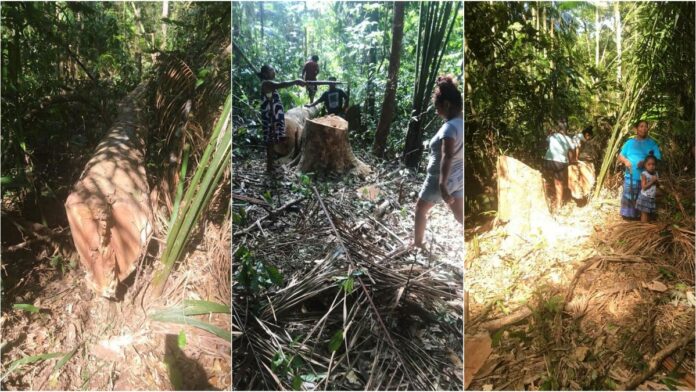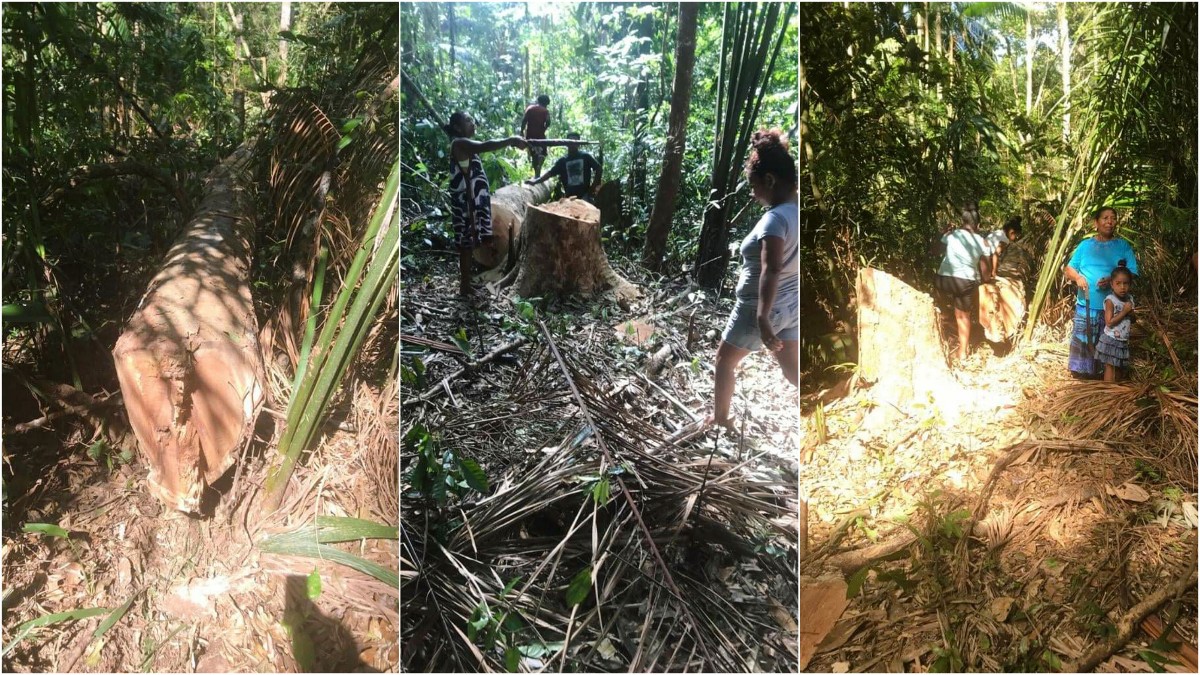
The indigenous village of Pikin Poika in Wanica Province has detected illegal logging in its residential and living environment, according to the Suriname Indigenous Village Chiefs Association (VIDS). The village chief, Joan van der Bosch, told her that two weeks ago a Basia had told her that people were chopping wood near the residential center of the village. It later turned out to be a man and his wife from the village of Santigron, which is adjacent to Peking Boyka.
They indicated that they needed wood to build their home. Because it was then about a tree trunk, village chief van der Bosch looked down on his fingers. “I made it clear to them that they should not cut down the trees anymore, because they are in the province of Bichen-Boeca. People will stick to it,” says van der Bosch.
The next day, the village chief was again annoyed by the Basia that the trees were again cut down in the same area. It turned out that they were the same people, and van der Bosch and El Pacia found 26 tree trunks on the ground. At the request of the village chief, rangers from the Forest Department and the Forest Stewardship Corporation (SBB) visited the site.
According to SBB, the area is not issued with a concession, but it is free land. “We decided from the village that the logs were left there, because they belonged to the Pikin Poika,” says van der Bosch. She reported what had happened to the traditional authorities in Santigron and promised to summon the people to give orders.
Despite this commitment, illegal activities continued. Last Wednesday, Pikin Poika villagers discovered an excavator and a timber truck to transport timber to another location. Van der Bosch, who was not in the village at the time, immediately called the police and the SBB.
However, no action was taken against these illegal practices and some construction logs were removed from the forest. The head of the village went to Santigron on the same day and spoke to the captain of the village. “He told me that the people (husband and wife) of Santigron had been contacted. They advised me to settle the matter with the police,” says van der Bosch.
She points out that Pikin Poika Creek is the traditional boundary between the two villages. The local communities agreed that the villagers would not only enter each other’s areas.
Evlau Haselnock, deputy director of the Forestry Department, says he is aware of the matter. SBB visited Pikin Poika after the village chief announced the problem. “We did not find the people who were involved in the timber activities. The captain told us that the timber should not be removed, because it belongs to the village and that is why the matter was settled for us,” says Haselnok. Since the village would be using wood, the SBB did not confiscate the logs.
Haselnok continues, saying the village chief called him again on Wednesday and told him people wanted the records removed. He recommended reporting the crime to the police. He also pointed out to her that the tree trunks were on the field land and did not belong to the captain or the village. “By law, all trees belong to the state,” Haselnok says. After consulting with the police, he told Van der Bosch to contact the district commissioner Švejk Gollman of southeast Wanica, as he is the highest authority in the district.
Van der Bosch points out again how important legal recognition of collective land rights is in order to prevent land issues with others. It calls on the government to speed up this process. “Outsiders cannot stay in our areas only to develop activities,” said the village chief.


Zombie specialist. Friendly twitter guru. Internet buff. Organizer. Coffee trailblazer. Lifelong problem solver. Certified travel enthusiast. Alcohol geek.

